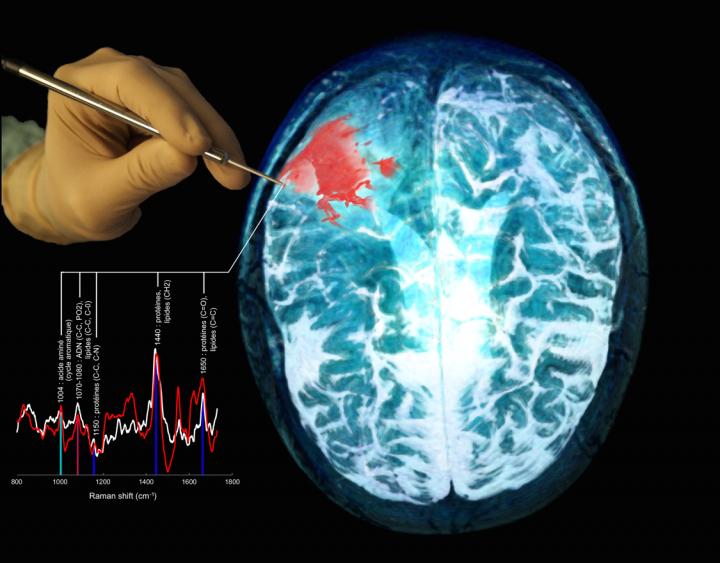According to a recent study published by the American Association for Cancer Research journal on Wednesday, cancer patients will now be able to enjoy longer life expectancy and reduced risk of recurrence thanks to a multimodal optical spectroscopy probe developed by Canadian researchers. The paper is titled, “Highly accurate detection of cancer in situ with intraoperative, label-free, multimodal optical spectroscopy”.
Back in 2015, scientists at Polytechnique Montréal, the University of Montreal Hospital Research Center (CRCHUM), the Montreal Neurological Institute and Hospital (The Neuro), McGill University, and the MUHC developed a hand-held Raman spectroscopy probe that allows surgeons to accurately detect all brain cancer cells in real time during the surgery.
The research team has now improvised the discovery and designed a new device that can detect not only the brain cells but colon, lung and skin cancer cells as well. In its testing, the spectroscopy probe detected cancer cells with exact accuracy.
This has been made possible because of the efforts of Frédéric Leblond and neurosurgical oncology specialist, Dr Kevin Petrecca.
“Minimising, or completely eliminating, the number of cancer cells during surgery is a critical part of cancer treatment, yet detecting cancer cells during surgery is challenging,” explains Dr Petrecca, Chief of Neurosurgery of the William Feindel Chair in Neuro-Oncology at the Neuro.
“Often it is impossible to visually distinguish cancer from normal brain, so invasive brain cancer cells frequently remain after surgery, leading to cancer recurrence and a worse prognosis. Surgically minimising the number of cancer cells improves patient outcomes”, he added.
Dr Frédéric Leblond, Professor of Engineering Physics at Polytechnique Montréal and a research fellow at the University of Montreal Hospital Research Centre (CRCHUM), states, “The probe we’ve designed enables detection of nearly 100 percent of cancer cells in the brain. This is a very important advance. We’ve also been able to demonstrate the effectiveness of our technology in treating other forms of cancer. This means that more patients will benefit from better diagnosis, more effective treatment, and lower risk of recurrence.”
The biggest advantage of this system is that the surgeons can use it during a surgery to detect cancer cells in real time, which is otherwise difficult for naked eyes to make an observation.
“A technology with extremely high accuracy is necessary since surgeons will be using this information to help determine if tissues contain cancer cells or not. An important feature of this device is its broad applicability. We found that it effectively detects multiple cancer types, including brain, lung, colon, and skin cancers,” Dr Petrecca adds.
The technology was first developed in 2015 and tested on more than 80 patients during surgery. Its recent developments show that the probe has now been perfected by its inventors. It is multimodal, also using intrinsic fluorescence spectroscopy to interpret the metabolic composition of the cells, as well as diffuse reflectance spectroscopy to analyse intrinsic tissue absorption in patients.
A formal approval process with the U.S. Food and Drug Administration (FDA) has begun so that the technology can be transferred to the hospitals in a few years.


















